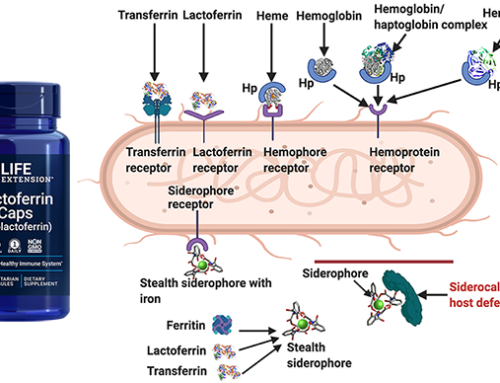By Peter Marino, M.S. CPT CHC
Sleep is often overlooked when it comes to our overall wellness plan, but it is a crucial component that should not be taken lightly. In today’s fast-paced society, many individuals prioritize work, socializing, and other activities over getting a good night’s rest. However, neglecting sleep can have detrimental effects on our physical and mental health. In this article, we will explore the importance of sleep in your wellness plan and discuss various strategies, supplements, and products that can help improve the quality of your sleep.
 Melatonin is a hormone that regulates sleep-wake cycles. It is naturally produced by the body in response to darkness and helps promote a sense of relaxation and drowsiness. Supplementing with melatonin can be beneficial for individuals who struggle with falling asleep or staying asleep throughout the night. Research has shown that melatonin can improve sleep quality and reduce the time it takes to fall asleep (Smith et al., 2020).
Melatonin is a hormone that regulates sleep-wake cycles. It is naturally produced by the body in response to darkness and helps promote a sense of relaxation and drowsiness. Supplementing with melatonin can be beneficial for individuals who struggle with falling asleep or staying asleep throughout the night. Research has shown that melatonin can improve sleep quality and reduce the time it takes to fall asleep (Smith et al., 2020).
Another supplement that can aid in improving sleep quality is l-theanine. L-theanine is an amino acid found in green tea that has been shown to promote relaxation and reduce anxiety. It can help calm the mind and prepare the body for sleep. A study conducted by Kimura et al. (2007) found that individuals who took l-theanine before bedtime experienced improved sleep quality and felt more refreshed upon waking.
Ashwagandha, an adaptogenic herb, has also been found to have sleep-enhancing properties. It helps reduce stress and anxiety, which are common factors that contribute to sleep disturbances. It may help you sleep better by reducing cortisol levels which are supposed to be low during your sleep cycle. A study published in the Journal of Clinical Sleep Medicine found that individuals who took ashwagandha extract experienced improved sleep quality and reduced sleep onset latency (Raut et al., 2019).
5-HTP, a precursor to serotonin, is another supplement that can aid in improving sleep. Serotonin is a neurotransmitter that plays a key role in regulating sleep, mood, and appetite. Research has shown that supplementing with 5-HTP can increase serotonin levels in the brain, leading to improved sleep quality and reduced insomnia symptoms (Shell et al., 2010).
Practicing Good Sleep Hygeine
In addition to incorporating supplements into your wellness plan, it is important to practice good sleep hygiene. Sleep hygiene refers to the habits and practices that promote healthy sleep. This includes establishing a consistent sleep schedule, creating a comfortable sleep environment, and avoiding stimulating activities and substances before bedtime. Following these guidelines can help regulate your body’s internal clock and improve the quality of your sleep.
Furthermore, eliminating blue light exposure in the evening can have a significant impact on your sleep quality. Blue light, emitted by electronic devices such as smartphones, tablets, computers, and TVs can interfere with the production of melatonin and disrupt your sleep-wake cycle. Wearing blue light-blocking eyewear in the evening can help reduce exposure to blue light and promote better sleep.
Sleep is a vital component of your overall wellness plan and neglecting it can have negative effects on your physical and mental health. Incorporating supplements such as melatonin, l-theanine, ashwagandha, and 5-HTP can help improve sleep quality. Practicing good sleep hygiene and eliminating blue light exposure in the evening are also important strategies to promote better sleep. By prioritizing sleep and implementing these strategies, you can enhance your overall well-being, speed up recovery, and achieve optimal health.
References
Kimura, K., Ozeki, M., Juneja, L. R., & Ohira, H. (2007). L-Theanine reduces psychological and physiological stress responses. Biological psychology, 74(1), 39–45. https://doi.org/10.1016/j.biopsycho.2006.06.006
Raut, A. A., Rege, N. N., Tadvi, F. M., Solanki, P. V., Kene, K. R., Shirolkar, S. G., Pandey, S. N., Vaidya, R. A., & Vaidya, A. B. (2012). Exploratory study to evaluate tolerability, safety, and activity of Ashwagandha (Withania somnifera) in healthy volunteers. Journal of Ayurveda and integrative medicine, 3(3), 111–114. https://doi.org/10.4103/0975-9476.100168
Shell, W., Bullias, D., Charuvastra, E., May, L. A., & Silver, D. S. (2010). A randomized, placebo-controlled trial of an amino acid preparation on timing and quality of sleep. American journal of therapeutics, 17(2), 133–139. https://doi.org/10.1097/MJT.0b013e31819e9eab
Smith, M. T., Perlis, M. L., Park, A., Smith, M. S., Pennington, J., Giles, D. E., & Buysse, D. J. (2002).
Comparative meta-analysis of pharmacotherapy and behavior therapy for persistent insomnia. The American journal of psychiatry, 159(1), 5–11. https://doi.org/10.1176/appi.ajp.159.1.5






